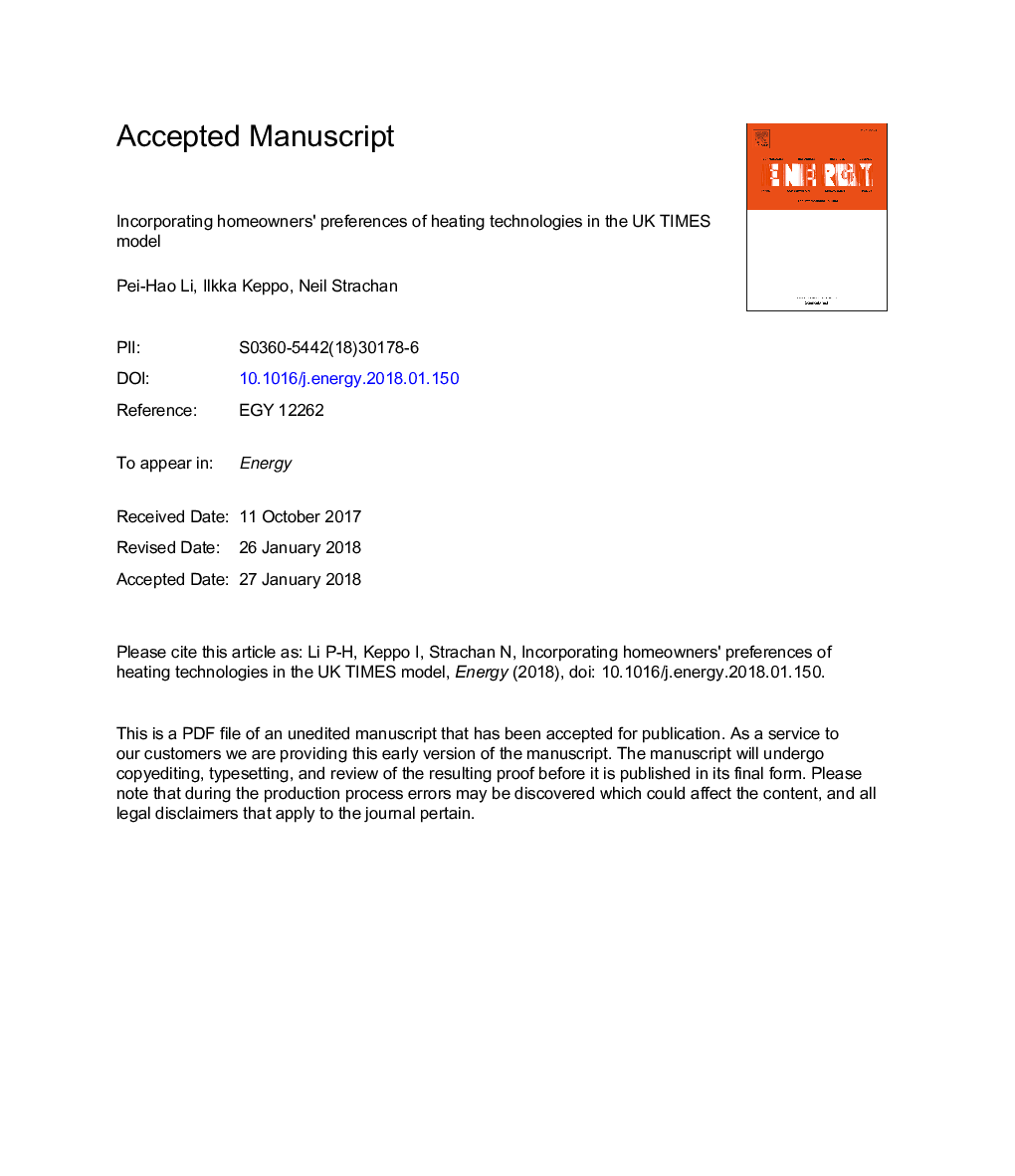| Article ID | Journal | Published Year | Pages | File Type |
|---|---|---|---|---|
| 8072045 | Energy | 2018 | 40 Pages |
Abstract
Hot water and space heating account for about 80% of total energy consumption in the residential sector in the UK. It is thus crucial to decarbonise residential heating to achieve UK's 2050 greenhouse gas reduction targets. However, the decarbonisation transitions determined by most techno-economic energy system models might be too optimistic or misleading for relying on cost minimisation alone and not considering households' preferences for different heating technologies. This study thus proposes a novel framework to incorporate heterogeneous households' (HHs) preferences into the modelling process of the UK TIMES model. The incorporated preferences for HHs are based on a nationwide survey on homeowners' choices of heating technologies. Preference constraints are then applied to regulate the HHs' choices of heating technologies to reflect the survey results. Consequently, compared to the least-cost transition pathway, the preference-driven pathway adopts heating technologies gradually without abrupt increases of market shares. Heat pumps and electric heaters are deployed much less than in the cost optimal result. Extensive district heating using low-carbon fuels and conservation measures should thus be deployed to provide flexibility for decarbonisation. The proposed framework can also incorporate preferences for other energy consumption technologies and be applied to other linear programming-based energy system models.
Keywords
Related Topics
Physical Sciences and Engineering
Energy
Energy (General)
Authors
Pei-Hao Li, Ilkka Keppo, Neil Strachan,
